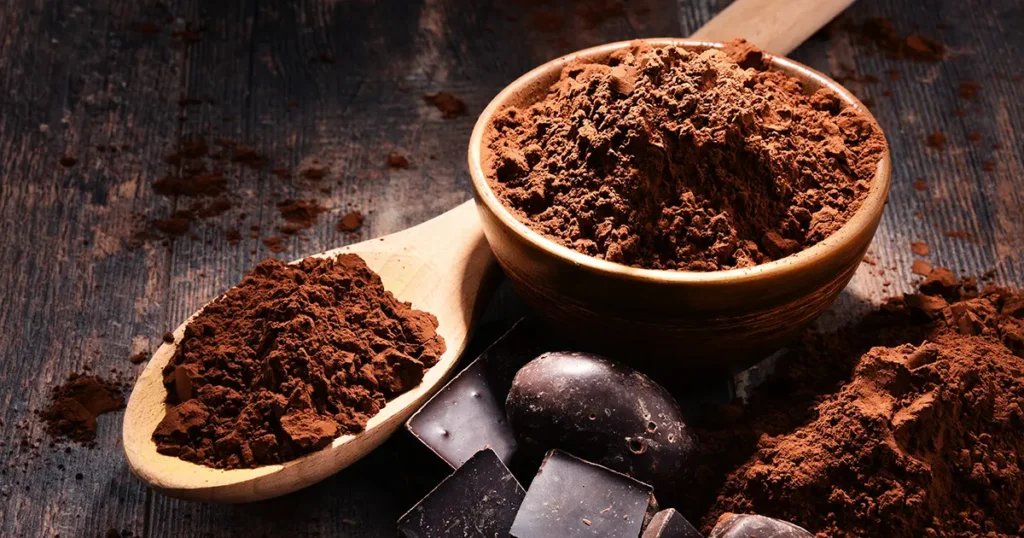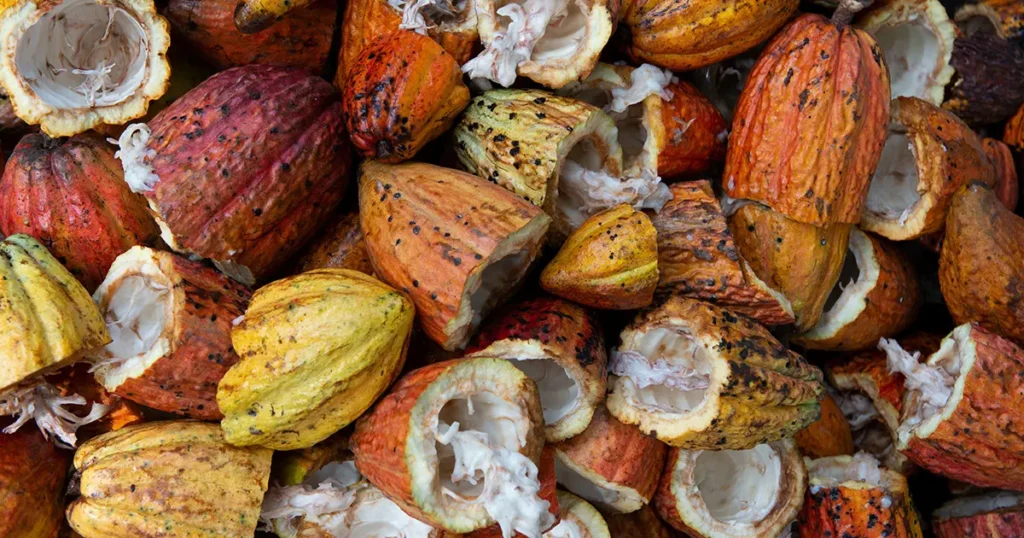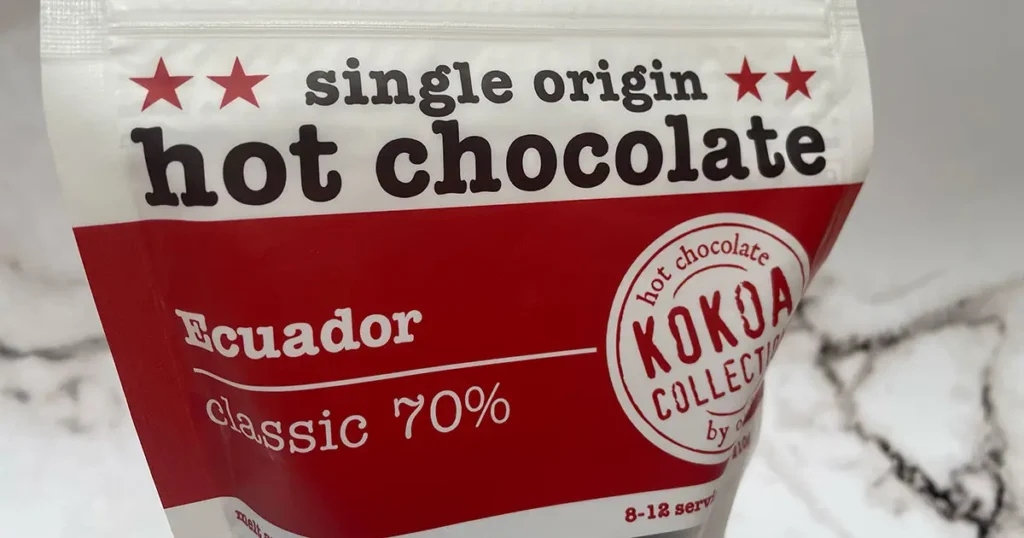If you’re like me, you relish the moments wrapped around a warm mug of hot chocolate. You’ve probably wondered, “Is hot chocolate good for you?” Delve into the myriad benefits of this delightful drink and uncover how it’s not merely an indulgent treat but a beneficial boost to various body systems.
The Origins of Hot Chocolate
Hot cocoa, commonly known in some places as drinking chocolate, traces its roots to the ancient civilisations of Central America.
Made from the seeds of the cacao fruit, it was considered a drink of gods.
The Mayans and Aztecs
These civilisations believed in the magical properties of the cacao fruit. It was more than just a drink; it was part of rituals and celebrations.
European Introduction
When explorers brought cacao seeds to Europe, drinking chocolate was reinvented with new flavours and became a beloved beverage of the nobility.

The Power-Packed Cocoa
Cocoa, the primary component of hot chocolate, is bursting with health benefits.
It’s not just about the taste; it’s about how it makes our heart, brain, and skin feel, so let’s explore the health and nutritional benefits of cocoa powder and hot chocolate.
The Heart-Healthy Aspects of Cocoa
When it comes to heart health, cocoa, the core ingredient in our beloved hot chocolate, emerges as an unsung hero.
The magical seeds of the cacao fruit have, for centuries, been consumed not just for their rich flavour but also for their potential health benefits, particularly concerning the heart.
The Role of Flavonols
One of the most significant components in cocoa that has garnered attention from health experts is flavonols.
Flavonols are a type of flavonoid, a group of polyphenolic compounds known for their antioxidant properties.
But their magic doesn’t just stop at being mere antioxidants.
- Regulation of Blood Pressure: Flavonols play a crucial role in supporting vascular health. They aid in the production of nitric oxide in the body. This molecule causes relaxation of the blood vessels, which leads to a decrease in blood pressure. By promoting vasodilation, flavonols facilitate better blood flow, ensuring that the heart doesn’t strain itself by working too hard against high resistance.
- Improving Blood Vessel Function: Beyond blood pressure regulation, flavonols in cocoa help enhance endothelial function. The endothelium is the inner lining of our blood vessels, playing a pivotal role in cardiovascular health. A well-functioning endothelium helps prevent atherosclerosis, a condition where arteries become clogged with fatty substances.
Cocoa and Cardiovascular Disease Prevention
There’s a growing body of research suggesting that moderate cocoa consumption can contribute to reduced risks associated with cardiovascular diseases.
- Cholesterol and Heart Health: Cocoa is believed to influence lipid metabolism. Studies have shown that it can increase the levels of high-density lipoprotein (HDL or the “good” cholesterol) and decrease the levels of low-density lipoprotein (LDL or the “bad” cholesterol). An optimal balance between HDL and LDL is key to preventing heart diseases, as LDL can lead to plaque formation in arteries, increasing the risk of heart attacks.
- Anti-inflammatory Properties: Chronic inflammation is often linked to various cardiovascular diseases. The compounds in cocoa exhibit anti-inflammatory properties, reducing the risk of inflammation-induced heart issues.
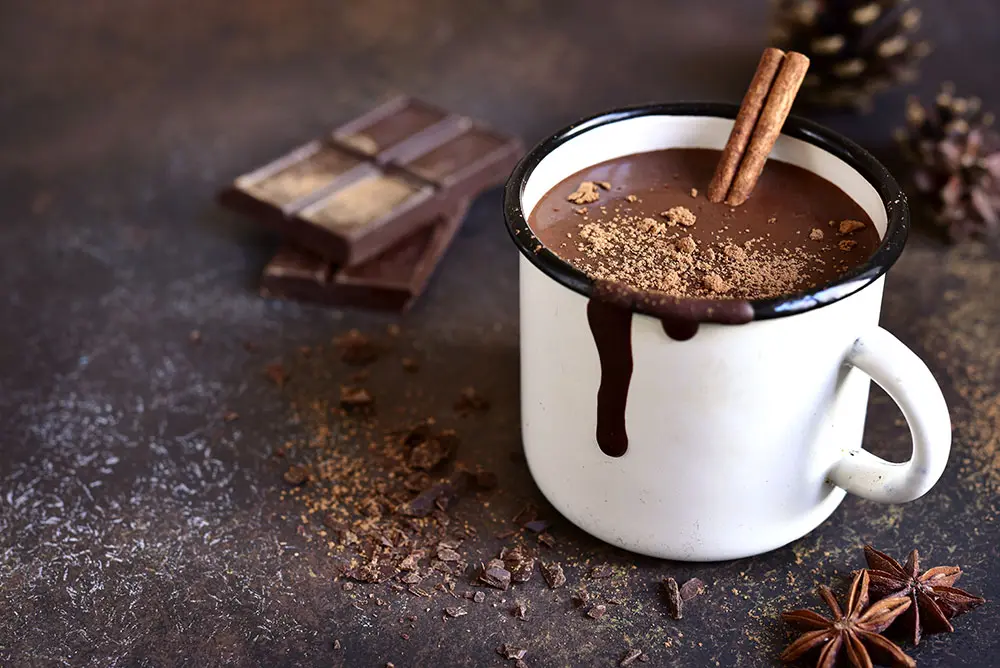
Cocoa and Brain Health: A Delectable Connection
Beyond the delicious aroma and taste, cocoa has also piqued the interest of neuroscientists and health enthusiasts for its potential positive effects on brain health.
The relationship between cocoa and cognitive function is a subject of growing interest, revealing a delightful alliance between indulgence and brain wellness.
The Brain-Boosting Compounds in Cocoa
Cocoa is a treasure trove of bioactive compounds, some of which have shown promise in supporting brain health.
- Flavonols: As we delve deeper into the components of cocoa, flavonols emerge prominently, not just for their cardiovascular benefits but also for their neuroprotective properties. These compounds have been linked with increased blood flow to the brain, particularly the regions associated with memory and learning.
- Methylxanthines: Cocoa contains stimulants like caffeine and theobromine. While their concentrations are much lower than, say, in a cup of coffee, these methylxanthines can enhance alertness and mood, potentially aiding cognitive processes.
Enhancing Learning and Memory
Regular consumption of cocoa, particularly in its purer forms, has been associated with a range of cognitive benefits.
- Neuroplasticity: One of the marvels of our brain is its ability to reorganise itself, forming new connections between neurons. Flavonols in cocoa have been shown to support this adaptability, known as neuroplasticity, which is vital for learning new information and skills.
- Memory Preservation: Age-related cognitive decline is a concern for many. However, some studies suggest that the compounds in cocoa can help counteract this decline, particularly in tasks related to working memory. While it’s no magic bullet, cocoa might just offer a delicious defence against the sands of time.
A Sip Towards Better Cognitive Function
The ritual of drinking hot cocoa has been a cherished one for generations. But when you consider the potential neurological benefits, that mug of hot cocoa seems even more inviting.
- Enhanced Mood: Beyond cognition, the compounds in cocoa have been associated with the release of endorphins and other neurotransmitters that elevate mood. This could potentially aid in reducing stress, further supporting cognitive function.
- Antioxidative Properties: The brain, being a highly metabolically active organ, is susceptible to oxidative stress. The antioxidants in cocoa can help combat this, safeguarding neuron health and function.

Cocoa and Skin Health: A Sweet Revelation
While many of us turn to lotions, serums, and other skincare products in our quest for radiant skin, there’s a delightful treat that might just be the unexpected ally in our skincare regime: cocoa.
Beyond its rich, comforting flavour, cocoa offers a suite of benefits for the skin, making that cup of hot chocolate not just a treat for the senses but also a boon for the skin.
The Magic of Improved Blood Flow
Cocoa, particularly dark chocolate, is rich in flavonoids that play a pivotal role in enhancing blood circulation.
- Nourishing the Skin: Better blood flow ensures that essential nutrients reach the skin cells more efficiently. This enhanced nourishment can lead to a more revitalised and glowing complexion, reducing the appearance of fatigue.
- Oxygen Boost: Improved circulation means more oxygen reaches the skin. This is vital for the repair and regeneration of skin cells, ensuring the skin remains supple and vibrant.
Skin Thickness and Resilience
The consumption of cocoa can positively impact the texture and resilience of the skin.
- Collagen Production: Cocoa is believed to stimulate the production of collagen, the protein responsible for skin elasticity. Higher collagen levels translate to reduced wrinkles and fine lines, maintaining the skin’s youthful appearance.
- Protection from External Aggressors: The antioxidants found in cocoa help in neutralising harmful free radicals in the environment. This provides a shield against external factors like pollution and UV rays that can deteriorate the skin’s quality.
The Hydration Factor
A well-hydrated skin is the foundation of a radiant complexion, and cocoa can be an unexpected ally in this.
- Natural Moisturisation: The essential fats present in cocoa can be beneficial for the skin. They help in locking in moisture, ensuring the skin remains hydrated and less prone to dryness and flakiness.
- Barrier Reinforcement: Healthy skin has a robust barrier that prevents excessive moisture loss. Compounds in cocoa can aid in strengthening this barrier, ensuring the skin retains its natural hydration levels.
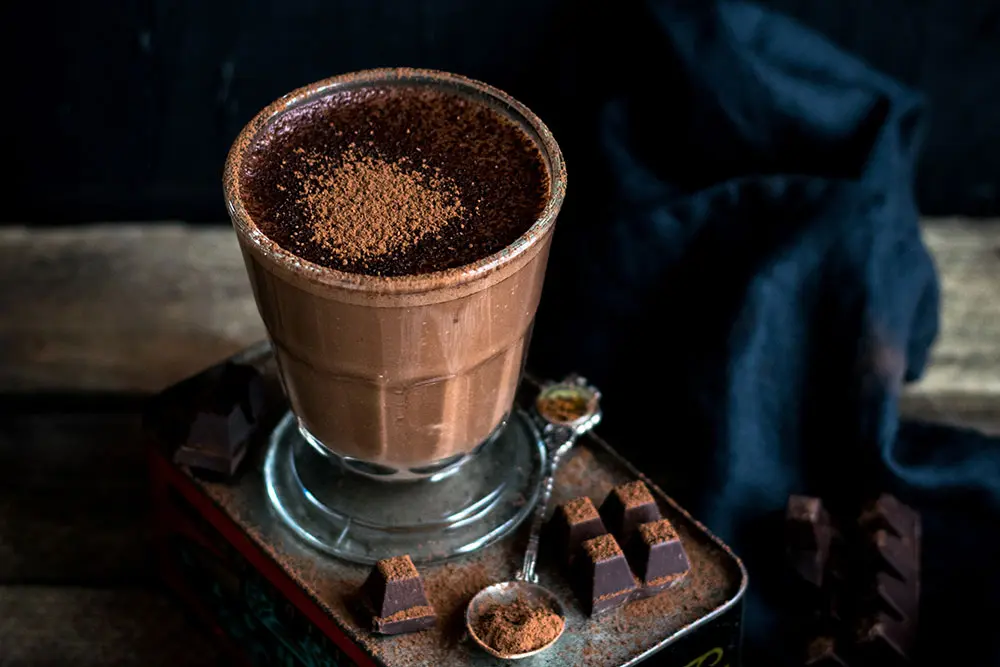
Chocolate vs Cocoa
Chocolate and cocoa come from the same source – the cacao fruit.
But their health implications can differ.
Calorie Content
The caloric values between chocolate and hot cocoa can be quite contrasting, making them fit for different dietary needs.
- Chocolate: Chocolates, particularly milk chocolates, are rich in cocoa butter, sugar, and, in some cases, milk solids, making them calorie-dense. While a small piece might be indulgent, larger quantities can quickly rack up the calorie count.
- Cocoa: On the other hand, cocoa, especially when made without heaps of added sugar or cream, can be a more waistline-friendly choice. Opting for hot cocoa might be a lighter way to satisfy chocolate cravings without consuming too many calories.
Health Benefits
Both chocolate and cocoa boast an array of health benefits, but the potency of these benefits is closely tied to their purity.
- Chocolate: Dark chocolate, renowned for its higher cocoa content, is loaded with antioxidants, particularly flavonoids, which have been linked to cardiovascular benefits. It’s also a source of minerals like magnesium and iron. However, it’s vital to consume it in moderation due to its high-calorie content.
- Cocoa: A pure cocoa drink, without excessive sugar or full-fat milk, offers many of the same benefits as dark chocolate, without the added calories from cocoa butter. Rich in flavonoids, it supports heart health, and its lower calorie content means one can enjoy it more frequently without major dietary implications.
Maintaining the Balance: Savouring Hot Chocolate Mindfully
Sipping hot chocolate, especially on a chilly day, evokes feelings of comfort and nostalgia. This delightful drink, rich in taste and tradition, also brings with it a range of health benefits.
However, as with many of life’s pleasures, the key to truly enjoying and benefiting from a If you’re looking for a healthy hot chocolate lies in a balanced approach.
The Importance of Moderation
It’s easy to be swayed by the enticing aroma and taste of hot chocolate, but it’s essential to remember the age-old adage: everything in moderation.
- Health Benefits vs Caloric Intake: While hot chocolate can be a source of antioxidants and other beneficial compounds, overindulgence can lead to an excessive intake of calories, sugars, and fats. This can inadvertently counteract the health advantages, leading to potential weight gain and other health concerns.
- Balancing Pleasure with Health: It’s all about finding that sweet spot (pun intended) where you can relish the sensory experience of hot chocolate while still being mindful of its impact on your health.
Choosing Your Hot Chocolate Wisely
Not all hot chocolates are created equal.
The market offers a wide range of options, from decadently creamy concoctions to simple, pure cocoa mixes.
Your choice can significantly influence the health benefits you derive.
- Low Sugar, High Rewards: A hot chocolate mix laden with sugars might tantalise the taste buds but can be detrimental in the long run. Opting for mixes with minimal added sugars or sweetening your cocoa with natural sweeteners like honey or stevia can make your drink both delicious and relatively healthier.
- The Purity of Cocoa: Pure cocoa is the heart of the beverage and is where most of the health benefits reside. Choosing hot chocolates with a higher percentage of pure cocoa ensures you’re getting a good dose of antioxidants and flavonoids, which are beneficial for heart health, mood enhancement, and more.
- Watch Out for Additives: Some commercial hot chocolate mixes come with a list of additives, from stabilisers to artificial flavourings. It’s always a good idea to check the ingredient list and opt for simpler, more natural mixes when possible.
So, is hot chocolate good for you?
Drinking hot chocolate is more than just a sweet treat on a cold day.
It’s a journey through history, a booster for body systems, and a treat for the heart, brain and skin.
To ensure this experience remains positive for both the palate and health, it’s essential to approach it with balance and mindfulness.
Doing so ensures that every sip offers both pleasure and wellness, making the ritual of drinking hot chocolate a truly holistic delight.
Note: Remember to always consult a healthcare professional or nutritionist about any major dietary decisions or if you have health concerns related to cocoa consumption.


